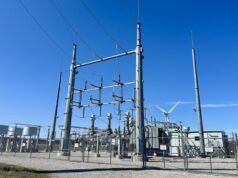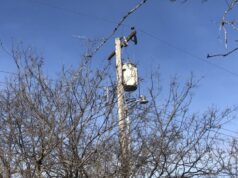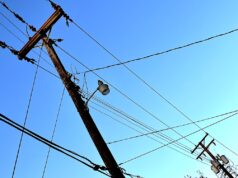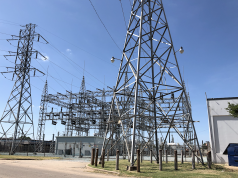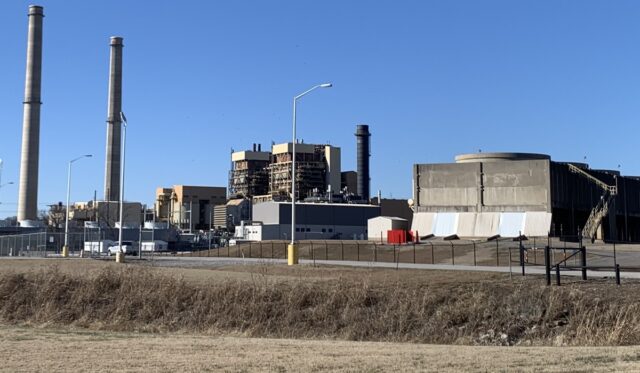

Attorney General Gentner Drummond filed a pair of lawsuits today in Osage County District Court on behalf of the Grand River Dam Authority against natural gas companies for alleged price manipulations, contract violations and civil conspiracy regarding their actions during Winter Storm Uri.
Drummond alleges that Symmetry Energy Solutions used its position as a GRDA fiduciary “to wrongfully reap staggering profits.” Similarly, Drummond alleges that four Enable Midstream companies — subsequently acquired by Energy Transfer for $7 billion in an agreement announced on the final day of the 2021 winter storm — employed “unlawful means to achieve their unlawful purpose of extracting exorbitant fees and penalties from GRDA.”
In February 2021, the winter storm caused about $195 billion in damages across the southern United States, according to one estimate, and Drummond indicated last year that his office was reviewing alleged price manipulation by “natural gas marketers.”
In a press release from the Attorney General’s Office, Wednesday’s lawsuits were designated as the “first” cases to be filed by Drummond and contracted law firms Foshee & Yaffe, Fulmer Sill and Tisdal & O’Hara.
“I believe the level of fraud perpetrated on Oklahomans during Winter Storm Uri is both staggering and unconscionable,” Drummond said in a press release. “While many companies conducted themselves above board during that trying time, our analysis indicates that some bad actors reaped billions of dollars in ill-gotten gains. It is important that we do everything in our power to hold bad actors accountable for their actions.”
As Oklahoma’s public power utility, the Grand River Dam Authority is a state agency and a major buyer of natural gas for its Grand River Energy Center and Redbud power plants. GRDA, which also operates hydroelectric and coal generation facilities, sells wholesale and retail electric power to about 110 customers, primarily municipalities and businesses in northeast Oklahoma and border states.
Each suit that Drummond’s office filed on behalf of GRDA is slightly different, but both accuse the companies of exploiting a loophole in regulations to inflate the price of natural gas artificially during the historic winter storm.
“During Winter Storm Uri, natural gas in Oklahoma reached prices that were 40 to 100 times those in Louisiana, a state also affected by this storm, but served by gas pipelines and traders that are regulated by the [Federal Energy Regulatory Commission],” Drummond said.
While states like Louisiana have their natural gas market regulated by the federal agency, Oklahoma lacks similar regulations on its natural gas market. Owing to quirks of federalism, federal regulations of the natural gas industry apply mostly to interstate markets.
However, Oklahoma is in the rare position of producing more gas than it consumes, making the natural gas market in Oklahoma mostly intrastate and largely exempt from federal regulators.
“As a result, Oklahoma’s intrastate natural gas market (…) is especially vulnerable to manipulation,” Drummond said. “Such manipulation can cause natural gas and electricity prices to soar in comparison to interstate markets and other states where intrastate pipelines are subject to heightened legal scrutiny.”
Electric utilities, both public and private, paid the historically high natural gas prices during the days of the storm and subsequently pursued various financing options to pay off those debts over time.
While GRDA’s annual fuel costs had totaled about $168 million annually in recent years, the state agency paid $102 million just during Winter Storm Uri. The GRDA Board of Directors used cash reserves to cover Uri-related fuel costs, with customers being given a choice to pay their inflated bills over either a 12-month or a 10-year period.
Investor-owned utilities in Oklahoma, however, chose to use a new program authorized by the Legislature following the storm. In doing so, OG&E ($761.6 million), PSO-AEP ($696.9 million) and Oklahoma Natural Gas ($1.35 billion) securitized their ratepayers’ debt for about two decades each.
Ironically, the fourth company that has used Oklahoma’s debt securitization process for Winter Storm Uri costs is Summit Utilities Oklahoma ($81.6 million), which in 2022 acquired the gas distribution assets of CenterPoint Energy, the same Houston-based conglomerate that sold its gas retail business to Symmetry in 2020.
Drummond’s filings drew praise from Sean Voskuhl, the Oklahoma state director for AARP.
“The companies who reaped billions of dollars on the backs of hard-working Oklahomans during Winter Storm Uri must be held accountable,” Voskuhl said. “Frustrated utility customers have been demanding to know why they are paying for a ‘once-in-a-generation’ storm for decades. Oklahomans are relieved action is being taken against the companies who bilked customers out of billions of dollars in a matter of days.”
Drummond: Symmetry pumped gas into storage in Uri price manipulation scheme
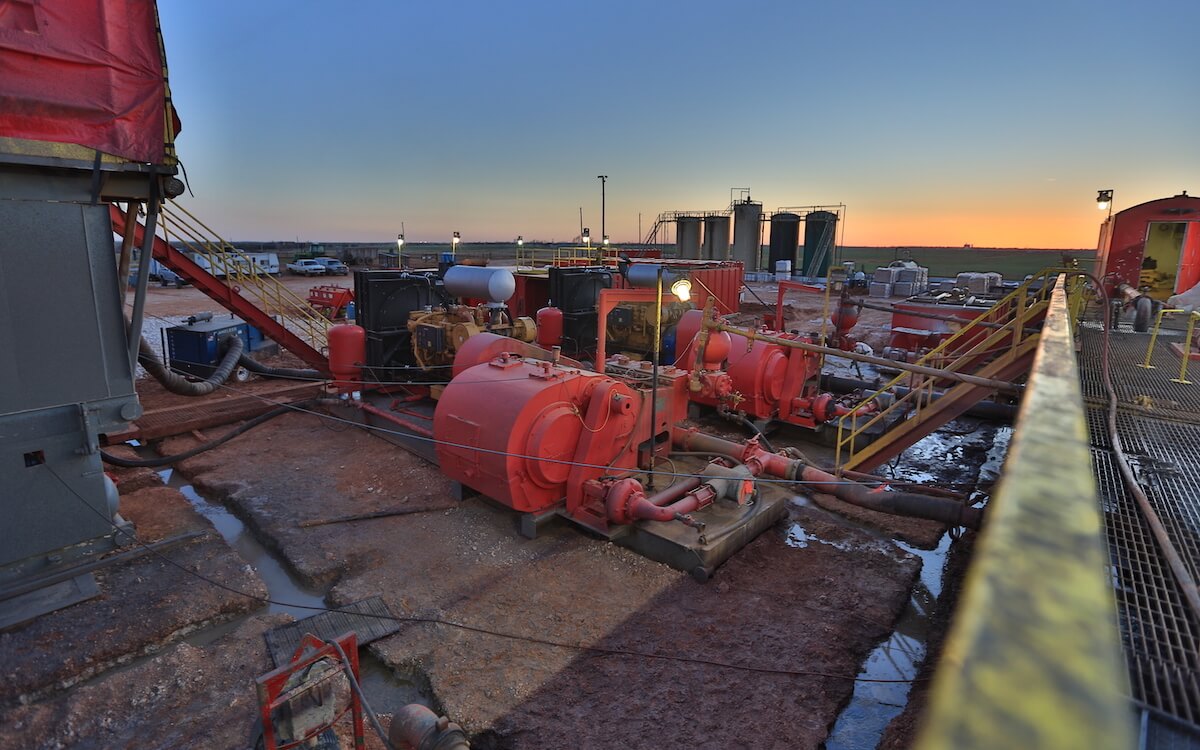
The first suit, filed against Symmetry Energy Solutions, alleges the company continued to pump natural gas into storage even as it invoked the acts of God clause of its contract with GRDA and substantially raised the price of natural gas.
“Both before and during Winter Storm Uri, Symmetry began injecting natural gas into storage rather than withdrawing it so that it would be available to meet demand,” filings said.
The eight claims filed against Symmetry include violation of state antitrust laws, breach of contract, unjust enrichment, fraud, constructive fraud, bad faith breach of contract, negligence, and breach of fiduciary duty.
One of the more consequential claims is the unjust enrichment claim, which would require the company to disgorge, or pay, portions of its profits from the time of the winter storm.
A request for comment from Symmetry representatives was acknowledged by email, but the operator of the company’s “media inquiries” account declined to identify themselves for attribution of the statement, which has been omitted here owing to its anonymous nature.
Previously, Symmetry’s sale of natural gas to Oklahoma hospitals like INTEGRIS had drawn questions about prices during Winter Storm Uri. And last year, the Oklahoma Legislature appropriated more than $5 million to the Commissioners of the Land Office to settle a $16 million natural gas price claim Symmetry made for providing fuel to several state entities during the storm.
Company conspiracy defrauded GRDA
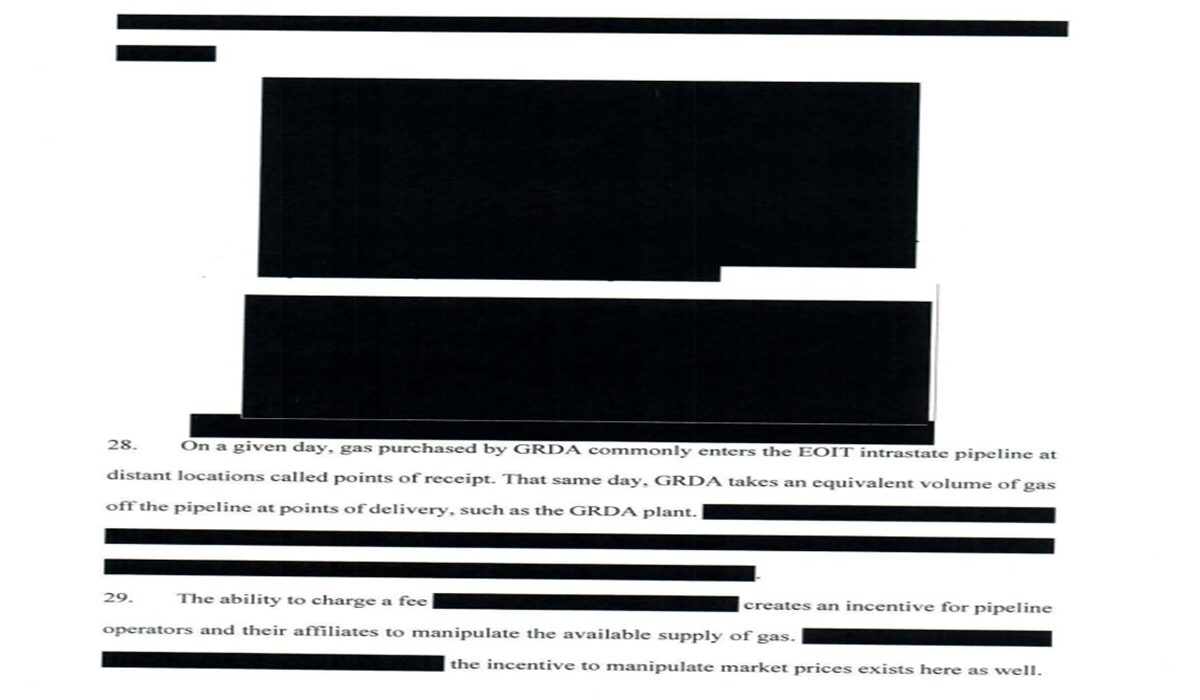
The second suit, filed against ET Gathering and Processing and four companies Energy Transfer purchased in 2021 — Enable Midstream Partners, Enable Oklahoma Intrastate Transmission, Enable Gas Transmission, and Enable Energy Resources — alleges the companies engaged in a civil conspiracy to raise the price of natural gas sold to GRDA.
The allegations are more specific against the Energy Transfer companies, although portions of the lawsuit involving contracts are redacted. Those redacted portions appear to refer to a type of fee or charge Enable Oklahoma Intrastate Transmission levied against GRDA that would not be allowed under federal regulations, if they applied.
According to the filing, the “Enable defendants” possess a monopoly on natural gas in Mayes County. Enable Intrastate Transmission owns the only natural gas pipeline connected to the GRDA power plant there, while the other companies completely control the county’s supply of natural gas.
“Defendants have a dominant gathering, processing, transportation, and distribution system for natural gas in the relevant market (…) and provide the only efficient and economically reasonable route for GRDA to transport natural gas to its power plants,” Drummond wrote. “Consequently, defendants possess the power to control the supply and price of natural gas in the market serving GRDA’s plants.”
While sections of the suit involving the companies’ contracts with the GRDA are heavily redacted, the rest of the suit is largely similar to the filing against Symmetry, carrying the same antitrust, breach of contract, unjust enrichment, fraud, constructive fraud, negligence and bad faith breach of contract claims.
However, an additional major claim made against the Enable defendants is civil conspiracy. Drummond’s filing alleges the companies used their de facto monopoly in Mayes County to conspire to raise the price of natural gas for the GRDA during Winter Storm Uri.
A lobbyist who represents Energy Transfer did not respond to a request for contact information for the company’s communications department.









